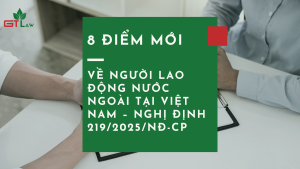Many people are concerned that any money transferred into an account may be considered income and subject to personal income tax. In fact, only money that is essentially business income is subject to tax, while normal civil transactions are completely exempt from tax. Below are 9 cases of receiving money transfers that people do not have to pay personal income tax, helping people feel secure in their transactions.

1. Money borrowed from relatives, friends, colleagues: Transfers between spouses, siblings, friends or relatives for borrowing purposes are not taxable.
2. Bank maturity: Money transferred into a personal account for disbursement or purchase of goods, then transferred out according to the transaction content, does not generate tax obligations.
3. Remittances from abroad: Money sent back to Vietnam by relatives doing business abroad is considered remittance and is tax-free. Note that it should be transferred through a Vietnamese bank to ensure transparency.
4. Collection and payment: Money received from customers and then transferred back to the store owner or company (such as shippers, gas station employees, etc.) is not taxed if no income is generated.
5. Transfer/withdraw money on behalf of: If an individual only supports money transfer or cash withdrawal without charging a fee, they do not have to pay tax. In case of charging a fee (for example: 100,000 VND for 10 million), this fee is subject to tax 7%.
6. Money from selling houses and land: If the sale price is correct in the notarized contract and the tax has been paid in full, no additional tax is required. If the sale price is “double-priced” (the contract is lower than the actual price), the tax authority can collect the actual price.
7. Salary transferred to spouse: Salary that has been paid personal income tax and then transferred to relatives is not subject to additional tax.
8. Salary transferred from abroad: If an individual works abroad, has paid taxes there and transfers money back to Vietnam, he/she does not have to pay taxes again (similar to remittances).
9. Interest-free personal loans: For loans from the association, if they do not charge interest, there is no tax. If an individual lends to a company and earns interest, they must pay tax 5% on the interest.
People can rest assured with the above 9 types of money transfer transactions, because they are not taxable income. The deciding factor is the nature of the money, not all transactions are taxable. Therefore, to avoid the risk of lack of transparency, people should be honest about the nature of the money transfer transaction, clearly state the transfer content or keep documents, contracts, or supporting documents so that tax authorities can easily determine the nature of the cash flow.
***For detailed advice on business law, please contact GT Law for 24/7 support***
=> Address: No. 184 Hoang Quoc Viet, Nghia Do Ward, Hanoi City.
=> Phone: 0968.594.623
=> Email: Luatgt.vn@gmail.com



